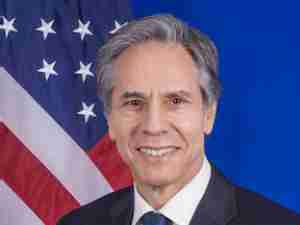Peak U.S. Autos May Not Mean Peak Canadian Auto-Parts Stocks
By: Kristine Owram | Aug 02 2017 at 12:00 AM | International Trade
It’s hard to be a Canadian auto-parts bull when U.S. car sales are falling, Nafta negotiations are about to start and the loonie is rising, but there are reasons for investors to hold their nerve.
No subsector of the S&P/TSX Composite Index has generated more consistent outperformance when bond yields are rising, according to Matt Barasch, Canadian equity strategist at RBC Capital Markets. The Bank of Canada raised rates last month for the first time since 2010 and the market is expecting at least one more increase this year, pushing long-dated bond yields to the highest since 2014.
Over 11 episodes of rising Canadian and U.S. bond yields since 2000, auto suppliers have generated a median return of 19 percent, Barasch wrote in a note. Looking at the four periods of rising yields since the financial crisis, Magna International Inc. and Linamar Corp. were the sixth and seventh best-performing stocks on the S&P/TSX, respectively.
The sector has generated a minimum of 18 percentage points of outperformance versus the broader index when rates are rising, Barasch found. Some of this is attributable to the auto-sales cycle, as higher rates generally signal a stronger economy, but “regardless, their outperformance stands out,” he said.
Comparatively Cheap
“Against this backdrop, we believe the auto parts sector continues to trade at attractive valuations with the index’s two largest names—Magna International and Linamar—trading well below the U.S. peer group average,” Barasch said.
Magna trades at a price-earnings ratio of 8.4 percent and Linamar Corp. trades at 7.9 percent compared with 13 percent at both BorgWarner Inc. and Johnson Controls International Plc.
Magna, Linamar and Martinrea International Inc. have gained an average of 23 percent over the past 12 months compared with 5 percent for the broader composite.
Sales Slide
We think people pay a little bit too much attention to the cyclicality of the auto industry,” said David Baskin, president of Toronto-based Baskin Wealth Management, which has about C$1.1 billion ($880 million) of assets under management, including shares of Magna. He likes its “astoundingly clean” balance sheet and global diversification which helps insulate it from consumer vagaries.
Warnings have been growing that the auto-sales cycle has plateaued and may be turning downwards, particularly in the U.S. where 2017 sales are expected to decline from last year’s record level. General Motors Co. posted a 15 percent drop in July sales on Tuesday, the worst in more than a year. Ford Motor Co. reported its biggest sales decline since October and Fiat Chrysler Automobiles NV had its second-worst tumble this year.
Add to this the looming renegotiation of the North American Free Trade Agreement, which U.S. President Donald Trump has vowed to tilt more in the U.S.’s favor, and a Canadian dollar that’s jumped nearly 10 percent since May—making exports less competitive—and it seems like a perfect storm for Canada’s auto suppliers.
Value Trap
Martin Roberge, North American portfolio strategist at Canaccord Genuity Group Inc., called auto suppliers “classic value traps,” in a note.
But David Tyerman, transportation and industrial products analyst at Cormark Securities Inc., is unfazed.
“It might surprise people that these stocks have been really good investments,” he said. He points out that U.S. vehicle affordability is at record highs, while ownership rates and sales per capita are below the peaks of previous cycles. Canada’s auto-parts stocks can do well even when the industry is flat or slightly negative because of strong backlogs, he said.
“Magna looks particularly interesting because its growth is accelerating right now,” said Tyerman, who rates the stock a top pick.
In contrast to the U.S., Canadian auto sales surged to a record for July and the country is on track to report a fifth consecutive annual high. European auto sales, meanwhile, have improved for three consecutive years, hitting a nine-year high in 2016, but demand is expected to wane in the back half of 2017.
As for renegotiating Nafta, Martinrea’s chairman doesn’t expect major changes.
“We are the postcard for Nafta. We’re a very interrelated industry, we’re very efficient, we make a lot of money,” Rob Wildeboer said in a recent interview on Bloomberg TV Canada. “I’m pretty comfortable that we’re going to get it right on the auto side.”








